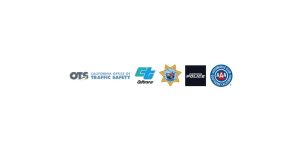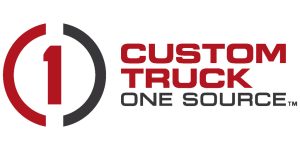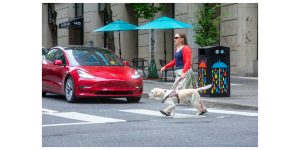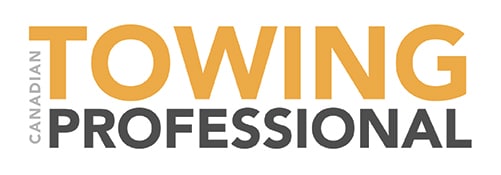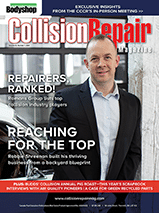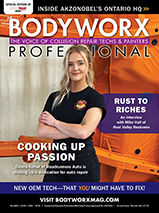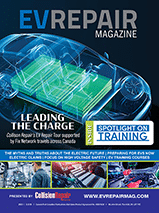Serbian government provides approximately $8 million (USD) in incentives
FINDLAY, Ohio–(BUSINESS WIRE)–Cooper Tire Serbia, a subsidiary of Cooper Tire & Rubber Company (NYSE:CTB), today announced it is well underway on a construction project to increase production capacity at its Kruševac tire manufacturing plant. With a strategic manufacturing footprint investment of approximately $55 million (USD) in equipment upgrades and facility expansion, the project will increase the size of the Kruševac facility to more than 882,000 square feet.
In addition, the company plans to add 118 new jobs. The project is supported by approximately $8 million (USD) in incentives provided by the Serbian government.
With this investment Cooper Tire Serbia will be able to produce new, larger diameter tires being demanded in Europe and other global markets. Total annual production capacity at the Kruševac plant will increase by approximately one-third at completion of this expansion, which is expected later this year, and will establish a footprint which could further double capacity with additional equipment and people.
“Cooper Tire Serbia is substantially increasing tire production capacity at our Kruševac site, which is a key facility within Cooper’s global manufacturing network, supplying high quality tires to Europe and other global markets,” said Brad Hughes, Cooper President & Chief Executive Officer. “This project will enable the facility to manufacture light truck tires, including 4×4 tires, and large diameter tires up to 22 inches in addition to the passenger car and sport utility vehicle (SUV) tires it currently produces.”
“This expansion demonstrates Cooper’s commitment to the Europe market and will position us to better meet customer needs throughout the region and beyond with high quality tires that are in step with what consumers want in today’s tires,” said Jaap van Wessum, Cooper’s General Manager – Europe, Middle East and Africa. “We appreciate the support of the Serbian government and the city of Kruševac in the continued development of this site, and look forward to completing the project.”
Cooper acquired the assets of the Kruševac plant in 2012 and has continued to invest in upgrades and expansion projects at the site.
Forward-Looking Statements
This report contains what the Company believes are “forward-looking statements,” as that term is defined under the Private Securities Litigation Reform Act of 1995, regarding projections, expectations or matters the Company anticipates may happen with respect to the future performance of the industries in which it operates, the economies of the U.S. and other countries, or the performance of the Company itself, which involve uncertainty and risk. Such forward-looking statements are generally, though not always, preceded by words such as “anticipates,” “expects,” “will,” “should,” “believes,” “projects,” “intends,” “plans,” “estimates,” and similar terms that connote a view to the future and are not merely recitations of historical fact. Such statements are made solely on the basis of the Company’s current views and perceptions of future events, and there can be no assurance that such statements will prove to be true.
It is possible that actual results may differ materially from projections or expectations due to a variety of factors, including, but not limited to:
- the impact of the ongoing coronavirus (COVID-19) pandemic, or similar public health crises, on the Company’s financial condition, operations, distribution channels, customers and suppliers, as well as potentially exacerbating other factors discussed herein;
- changes in the Company’s customer or supplier relationships or distribution channels, due to the ongoing COVID-19 pandemic or otherwise, including the write-off of outstanding accounts receivable or loss of particular business for competitive, credit, liquidity, bankruptcy, restructuring or other reasons;
- the Company’s ability to resume and maintain full operations at facilities that have been idled and restarted due to the COVID-19 pandemic, and the impact of other disruptions to the Company’s operations relating to the pandemic, including due to travel and other government-imposed restrictions;
- the costs and timing of restructuring actions and impairments or other charges resulting from such actions, or disruptions or other adverse impacts of such actions, including restructuring and related actions in Europe, the U.S. and at the Company’s manufacturing facility in Mexico, after the Company’s purchase of the remaining noncontrolling interest in such facility in January, or from adverse industry, market or other developments, including the impact of the COVID-19 pandemic;
- volatility in raw material and energy prices, including those of rubber, steel, petroleum-based products and natural gas or the unavailability of such raw materials or energy sources;
- the failure to achieve expected sales levels;
- volatility in the capital and financial markets or changes to the credit markets and/or access to those markets;
- the failure of the Company’s suppliers to timely deliver products or services in accordance with contract specifications;
- changes to tariffs or trade agreements, or the imposition of new or increased tariffs or trade restrictions, imposed on tires, raw materials or manufacturing equipment which the Company uses, including changes related to tariffs on tires, raw materials and tire manufacturing equipment imported into the U.S. from China or other countries;
- the impact of labor problems, including labor disruptions at the Company, its joint ventures, or at one or more of its large customers or suppliers;
- changes in economic and business conditions in the world, including changes related to the COVID-19 pandemic and to the United Kingdom’s withdrawal from the European Union;
- the inability to obtain and maintain price increases to offset higher production, tariffs, raw material, energy or other costs;
- a disruption in, or failure of, the Company’s information technology systems, including those related to cybersecurity, could adversely affect the Company’s business operations and financial performance;
- increased competitive activity, including actions by larger competitors or lower-cost producers;
- the failure to develop technologies, processes or products needed to support consumer or customer demand or changes in consumer or customer behavior, brand perceptions, and preferences, including changes in sales channels;
- consolidation or other cooperation by and among the Company’s competitors or customers;
- inaccurate assumptions used in developing the Company’s strategic plan or operating plans, or the inability or failure to successfully implement such plans or to realize the anticipated savings or benefits from strategic actions;
- risks relating to investments and acquisitions, including the failure to successfully integrate them into operations or their related financings may impact liquidity and capital resources;
- the ultimate outcome of litigation brought against the Company, including product liability claims, which could result in commitment of significant resources and time to defend and possible material damages against the Company or other unfavorable outcomes;
- the failure to successfully ramp up production at the Company’s ACTR joint venture to produce TBR tires according to plans, and the ability to find and develop alternative sources for TBR products;
- government regulatory and legislative initiatives including environmental, healthcare, privacy and tax matters;
- changes in interest or foreign exchange rates or the benchmarks used for establishing the rates;
- an adverse change in the Company’s credit ratings, which could increase borrowing costs and/or hamper access to the credit markets;
- failure to implement information technologies or related systems, including failure by the Company to successfully implement ERP systems;
- the risks associated with doing business outside of the U.S.;
- technology advancements;
- the inability to recover the costs to refresh existing products or develop and test new products or processes;
- failure to attract or retain key personnel;
- changes in pension expense and/or funding resulting from the Company’s pension strategy, investment performance of the Company’s pension plan assets and changes in discount rate or expected return on plan assets assumptions, changes to participant behavior, or changes to related accounting regulations;
- changes in the Company’s relationship with its joint venture partners or suppliers, including any changes with respect to its former PCT joint venture’s production of TBR products;
- tax-related issues, including the ability to support certain tax positions, the impact of tax reform legislation and the inability to utilize deferred tax assets;
- a variety of factors, including market conditions, may affect the actual amount expended on stock repurchases; the Company’s ability to consummate stock repurchases; changes in the Company’s results of operations or financial conditions or strategic priorities may lead to a modification, suspension or cancellation of stock repurchases, which may occur at any time; and
- the inability to adequately protect the Company’s intellectual property rights.
It is not possible to foresee or identify all such factors. Any forward-looking statements in this report are based on certain assumptions and analyses made by the Company in light of its experience and perception of historical trends, current conditions, expected future developments and other factors it believes are appropriate in the circumstances. Prospective investors are cautioned that any such statements are not a guarantee of future performance and actual results or developments may differ materially from those projected.
The Company makes no commitment to update any forward-looking statement included herein or to disclose any facts, events or circumstances that may affect the accuracy of any forward-looking statement. Further information covering issues that could materially affect financial performance is contained under Risk Factors below and in the Company’s other filings with the U. S. Securities and Exchange Commission (“SEC”).
About Cooper Tire Serbia
Cooper Tire Serbia is a subsidiary of Cooper Tire & Rubber Company which operates a tire manufacturing plant in Kruševac. The facility was acquired by Cooper in January 2012 and currently produces passenger car and SUV tires primarily for Europe and other global markets. It is one of the most significant U.S. investments in the Republic of Serbia.
About Cooper Tire & Rubber Company
Cooper Tire & Rubber Company (NYSE:CTB) is the parent company of a global family of companies that specializes in the design, manufacture, marketing and sale of passenger car, light truck, medium truck, motorcycle and racing tires. Cooper’s headquarters is in Findlay, Ohio, with manufacturing, sales, distribution, technical and design operations within its family of companies located in more than one dozen countries around the world. For more information on Cooper, visit www.coopertire.com, www.facebook.com/coopertire or www.twitter.com/coopertire.
Contacts
Investors:
Jerry Bialek
419.424.4165
investorrelations@coopertire.com
Media:
Anne Roman
419.429.7189
alroman@coopertire.com


